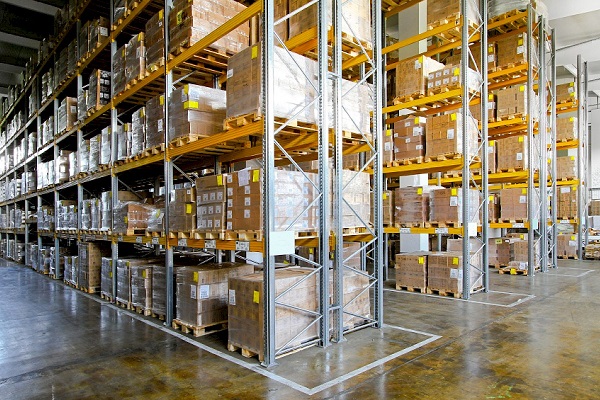In the world of logistics and supply chain management, choosing the right warehousing solution is crucial for businesses. Two popular options are bonded warehousing and traditional warehousing.
Each has its unique advantages and disadvantages, and the right choice depends on various factors such as the nature of your goods, regulatory requirements, and your business goals. This article will explore the key differences between bonded and traditional warehousing, helping you make an informed decision.
Understanding Bonded Warehousing
What Is Bonded Warehousing?
Bonded warehousing refers to storage facilities authorized by customs authorities to store imported goods that have not yet cleared customs. These warehouses allow businesses to defer customs duties and taxes until the goods are removed from the facility. This arrangement can provide significant financial benefits, particularly for international businesses.
Key Features of Bonded Warehousing
- Duty Deferral: One of the most significant advantages of bonded warehousing is the ability to defer customs duties and taxes. This means that businesses can hold inventory without incurring immediate costs, freeing up cash flow for other operational needs.
- Regulatory Compliance: Bonded warehouses are subject to strict regulatory oversight. This ensures that businesses adhere to customs laws and regulations, providing an added layer of security for both the warehouse operator and the goods stored.
- Flexibility: Businesses can choose to either store goods in a bonded warehouse for an extended period or remove them as soon as they are needed. This flexibility allows for better inventory management.
- Specialized Handling: Bonded warehouses often have specialized handling and storage capabilities for specific types of goods, including perishables, hazardous materials, and high-value items.
Understanding Traditional Warehousing
What Is Traditional Warehousing?
Traditional warehousing refers to standard storage facilities that are not subject to customs regulations. Businesses utilize traditional warehouses for various purposes, including storage, order fulfillment, and distribution of goods. These warehouses typically handle goods that are already cleared through customs and are ready for sale or distribution.
Key Features of Traditional Warehousing
- Immediate Access: Traditional warehouses allow businesses to store and access their goods immediately, making them ideal for products that require quick turnaround times.
- Lower Regulatory Oversight: Unlike bonded warehouses, traditional warehouses face fewer regulatory requirements, making them easier to manage. However, businesses must still comply with general health and safety regulations.
- Broader Application: Traditional warehousing can accommodate a wider range of goods, including domestically sourced products and items that do not require special handling.
- Simplified Operations: Traditional warehouses often have streamlined operations, allowing for easier inventory management and order fulfillment.
Comparing Bonded and Traditional Warehousing
| Feature | Bonded Warehousing | Traditional Warehousing |
|---|---|---|
| Customs Duties | Duties deferred until goods are cleared | Duties paid prior to storage |
| Regulatory Oversight | High | Moderate |
| Flexibility | High | Moderate |
| Access to Goods | Limited until customs clearance | Immediate access |
| Specialized Handling | Available for specific goods | General handling for all products |
| Cost Implications | Potentially lower short-term costs | Immediate costs associated with goods |
Which Is Right for You?
The decision between bonded and traditional warehousing ultimately depends on your specific business needs. Here are some factors to consider:
When to Choose Bonded Warehousing
- International Trade: If your business involves importing goods from other countries, bonded warehousing can provide significant cost savings through duty deferral.
- Cash Flow Management: Companies looking to improve cash flow can benefit from holding inventory in a bonded warehouse until needed.
- Regulatory Compliance Needs: Businesses that need to ensure strict compliance with customs regulations may prefer bonded warehousing for its oversight and security.
- Specialized Goods: If you handle high-value items, perishables, or hazardous materials, bonded warehouses often offer the specialized handling and storage required.
When to Choose Traditional Warehousing
- Domestic Operations: Businesses focused on domestic distribution or retailing may find traditional warehousing more efficient and straightforward.
- Quick Turnaround: If your products require immediate access and quick distribution, traditional warehousing is a better fit.
- Simplicity in Operations: Companies seeking a simpler approach to inventory management without the complexities of customs regulations may prefer traditional warehousing.
- Diverse Product Range: If your inventory includes a mix of domestic and international goods, traditional warehousing can accommodate all your storage needs without additional customs processes.
Conclusion
Choosing between bonded and traditional warehousing is a critical decision for any business involved in logistics and supply chain management. While bonded warehousing offers the advantages of duty deferral and regulatory compliance, traditional warehousing provides immediate access and simplicity. Understanding your business’s unique needs and goals will help you make the best choice for your warehousing strategy.
In summary, assess your operational requirements, regulatory considerations, and financial objectives before deciding. By choosing the right warehousing solution, you can enhance your supply chain efficiency and support your business growth in a competitive market.
Also Read
Container Innovation: A key driver for sustainability in the logistics industry
The essential role of lubrication in optimizing logistics operations


